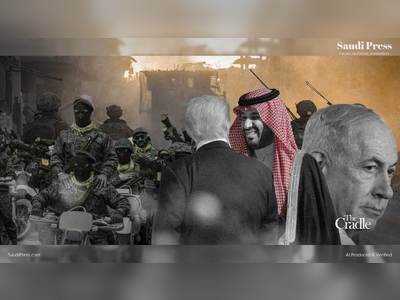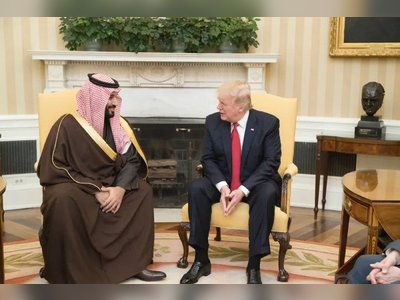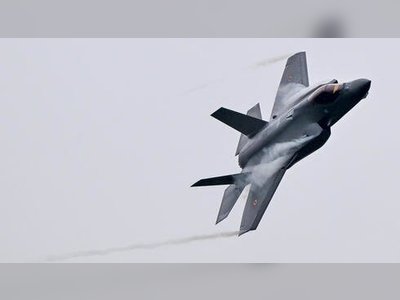
Former Mossad Chief Says Israel Operates Inside Iran as Saudi Crown Prince Signals Possible Normalization
Yossi Cohen affirms covert Israeli operations in Iran; Mohammed bin Salman’s openness to ties may accelerate Middle East rapprochement
Former head of Israel’s intelligence agency, Yossi Cohen, has publicly affirmed that the spy service continues to operate inside Iran — a statement that underlines the long-range reach of Israeli intelligence following recent strikes on Tehran’s nuclear and missile infrastructure.
Cohen’s remarks come as Saudi Arabia’s Crown Prince, Mohammed bin Salman, signals a growing openness to normalising relations with Israel, suggesting a potential shift in regional alignments.
In a recent interview, Cohen declared that Iran’s nuclear-enrichment capacity has been “obliterated,” claiming that Israel — with the support of the United States — struck key Iranian facilities this summer.
He added that Israel retains the ability to carry out further operations if Iran attempts to rebuild its capabilities, noting that these latest actions were enabled by extensive on-the-ground intelligence work.
Cohen described what occurred as a “great achievement” and indicated that the strikes and espionage efforts showcased Israel’s capacity to neutralise existential threats.
The former spy-chief also expressed optimism that the same strategic momentum would facilitate new peace accords across the Middle East.
Many observers interpret his comments as a signal that Israel is preparing for a broader diplomatic push.
Parallel to these developments in the security and intelligence realm, Mohammed bin Salman appears increasingly receptive to normalisation with Israel.
While Riyadh has long maintained that any formal ties must coincide with meaningful progress toward a Palestinian resolution, recent statements suggest a tentative recalibration.
The Crown Prince reportedly plans to visit Washington soon, and Cohen himself predicted this could be “an important visit for us in the region.” This alignment of strategic interests and diplomacy raises the prospect of a new chapter for Arab-Israeli relations — one that could reshape alliances and regional security dynamics.
Together, the public confirmation of active Israeli operations within Iran and Saudi Arabia’s diplomatic overtures mark a turning point: a period in which intelligence actions, military pressure and political diplomacy converge.
For Israel, Cohen’s declarations serve as a demonstration of strength and deterrence; for Saudi Arabia, the overtures hint at the possibility of redefining its regional posture, potentially aligning more closely with Israeli-American security frameworks.
The coming weeks — especially any high-level visits to Washington — may show whether this convergence will lead to real, formal diplomatic breakthroughs.
Cohen’s remarks come as Saudi Arabia’s Crown Prince, Mohammed bin Salman, signals a growing openness to normalising relations with Israel, suggesting a potential shift in regional alignments.
In a recent interview, Cohen declared that Iran’s nuclear-enrichment capacity has been “obliterated,” claiming that Israel — with the support of the United States — struck key Iranian facilities this summer.
He added that Israel retains the ability to carry out further operations if Iran attempts to rebuild its capabilities, noting that these latest actions were enabled by extensive on-the-ground intelligence work.
Cohen described what occurred as a “great achievement” and indicated that the strikes and espionage efforts showcased Israel’s capacity to neutralise existential threats.
The former spy-chief also expressed optimism that the same strategic momentum would facilitate new peace accords across the Middle East.
Many observers interpret his comments as a signal that Israel is preparing for a broader diplomatic push.
Parallel to these developments in the security and intelligence realm, Mohammed bin Salman appears increasingly receptive to normalisation with Israel.
While Riyadh has long maintained that any formal ties must coincide with meaningful progress toward a Palestinian resolution, recent statements suggest a tentative recalibration.
The Crown Prince reportedly plans to visit Washington soon, and Cohen himself predicted this could be “an important visit for us in the region.” This alignment of strategic interests and diplomacy raises the prospect of a new chapter for Arab-Israeli relations — one that could reshape alliances and regional security dynamics.
Together, the public confirmation of active Israeli operations within Iran and Saudi Arabia’s diplomatic overtures mark a turning point: a period in which intelligence actions, military pressure and political diplomacy converge.
For Israel, Cohen’s declarations serve as a demonstration of strength and deterrence; for Saudi Arabia, the overtures hint at the possibility of redefining its regional posture, potentially aligning more closely with Israeli-American security frameworks.
The coming weeks — especially any high-level visits to Washington — may show whether this convergence will lead to real, formal diplomatic breakthroughs.








